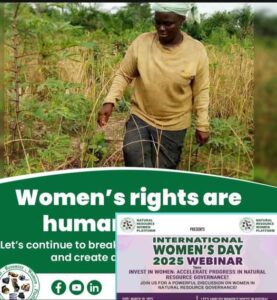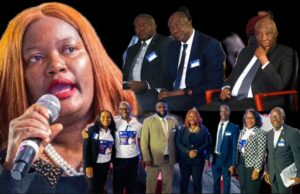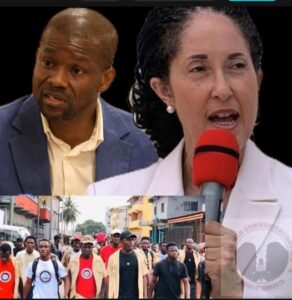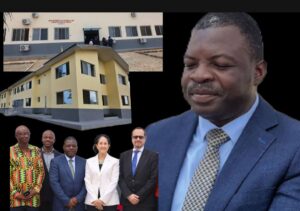ARD AND AFFECTED COMMUNITIES IN LAC AND SRC SIGN MOU FOR CONSTRUCTION OF HUMAN RIGHTS CENTER
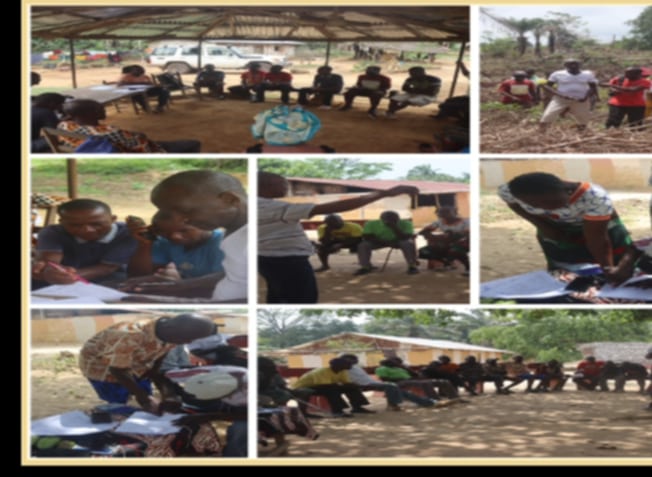
The Alliance for Rural Democracy (ARD) has facilitated the process of signing a Memorandum of Understanding (MOU) between two local organizations affected by the operations of multinational concession companies.
The Mou was signed between the Ablojay, a local human rights group and the Leadership of Gbarnfein town, one of the affected communities of the Liberia Agriculture Company (LAC) in Grand Bassa. Also, a similar MOU was signed between the Yeabamah National Congress for Human Rights (YNCHR) and the leadership of Doakai town, one of the affected communities of Salala Rubber Corporation (SRC), located in Margibi and Bong Counties.
This initiative is about to pave the way for the construction of multipurpose mobilization and training centers in the two regions. It aims to symbolize a commitment to sustainable development and social justice. The significance of this partnership lies not only in the tangible outcome of a physical center but also in the spirit of cooperation and solidarity it embodies.
At its core, the MOU represents a shared vision between the Alliance for Rural Democracy and affected communities to create a space that serves as a focal point for community organizing, capacity building, and advocacy for human rights. By providing a dedicated facility, the center aims to empower marginalized communities to address systemic challenges and advocate for positive change. Central to the MOU is the donation of land by the affected communities, demonstrating their commitment to the project and their desire to be active participants in shaping their future.
This gesture underscores the importance of community ownership and agency in development initiatives, ensuring that solutions are contextually relevant and sustainable in the long term. Moreover, it fosters a sense of pride and ownership among community members, instilling a collective responsibility for the success of the center.
In Grand Bassa County, local communities affected by the operations of the Liberia Agricultural Company (LAC) made the agreement on Friday, March 22, 2024, for the donation of one (1) acre of land for the construction of the multipurpose mobilization center.
The center will be used by Ablojay, a local organization championing the advocacy of affected communities in LAC. While affected communities in the Salala Rubber Corporation in Margibi and Bong Counties on Monday, March 25, 2024, signed a MOU donating eight (acres of Land for the construction of the center in Doakai Town to be used by the Yeabamah National Congress for Human Rights, a local organization championing the advocacy of affected communities in SRC. Both centers will contain two offices, guest rooms, bathrooms, and a training hall.
The project is directly implemented by the Alliance for Rural Democracy (ARD), with support from HEKS. When completed, the local human rights centers will document reprisal attacks against local human and environmental defenders in the affected communities in SRC and LAC. The multipurpose nature of the center reflects the diverse needs and priorities of the communities it serves. From providing space for grassroots organizing and mobilization to offering training workshops on human rights, advocacy, and sustainable development, the center will serve as a hub for community empowerment and capacity building. Additionally, it will serve as a platform for dialogue and collaboration between different stakeholders, including local governments, civil society organizations, and international partners.
The establishment of the center signals a commitment to advancing human rights and social justice in the face of adversity. In both the LAC and SRC regions, communities often face systemic barriers to accessing their rights, including land tenure insecurity, environmental degradation, and socio-economic marginalization.
By providing a dedicated space for advocacy and mobilization, the center will empower communities to assert their rights, challenge injustice, and drive positive change. The MOU between the local organizations and the affected communities represents a model of partnership that transcends traditional donor-recipient relationships. It exemplifies a collaborative approach to development that places communities at the center of decision-making processes and values their knowledge, experiences, and aspirations.
As such, it serves as a beacon of hope for grassroots movements and organizations working towards a more just and equitable world. Looking ahead, the construction of the multipurpose mobilization, training, and human rights center is not merely a physical undertaking but a journey toward social transformation. It is a testament to the power of collective action and solidarity in the pursuit of human dignity and justice. As the center takes shape, it will stand as a tangible symbol of resilience, resistance, and hope for generations to come.
The Alliance for Rural Democracy (ARD) is a network of community-based organizations (CBOs), pro-poor enterprises, and informal sector organizations from across Liberia who are working in solidarity to address the numerous problems confronting and affecting rural poor, urban slum, and squatter communities, pro-poor informal sector institutions and newly emerging and independent labor unions in Liberia.
